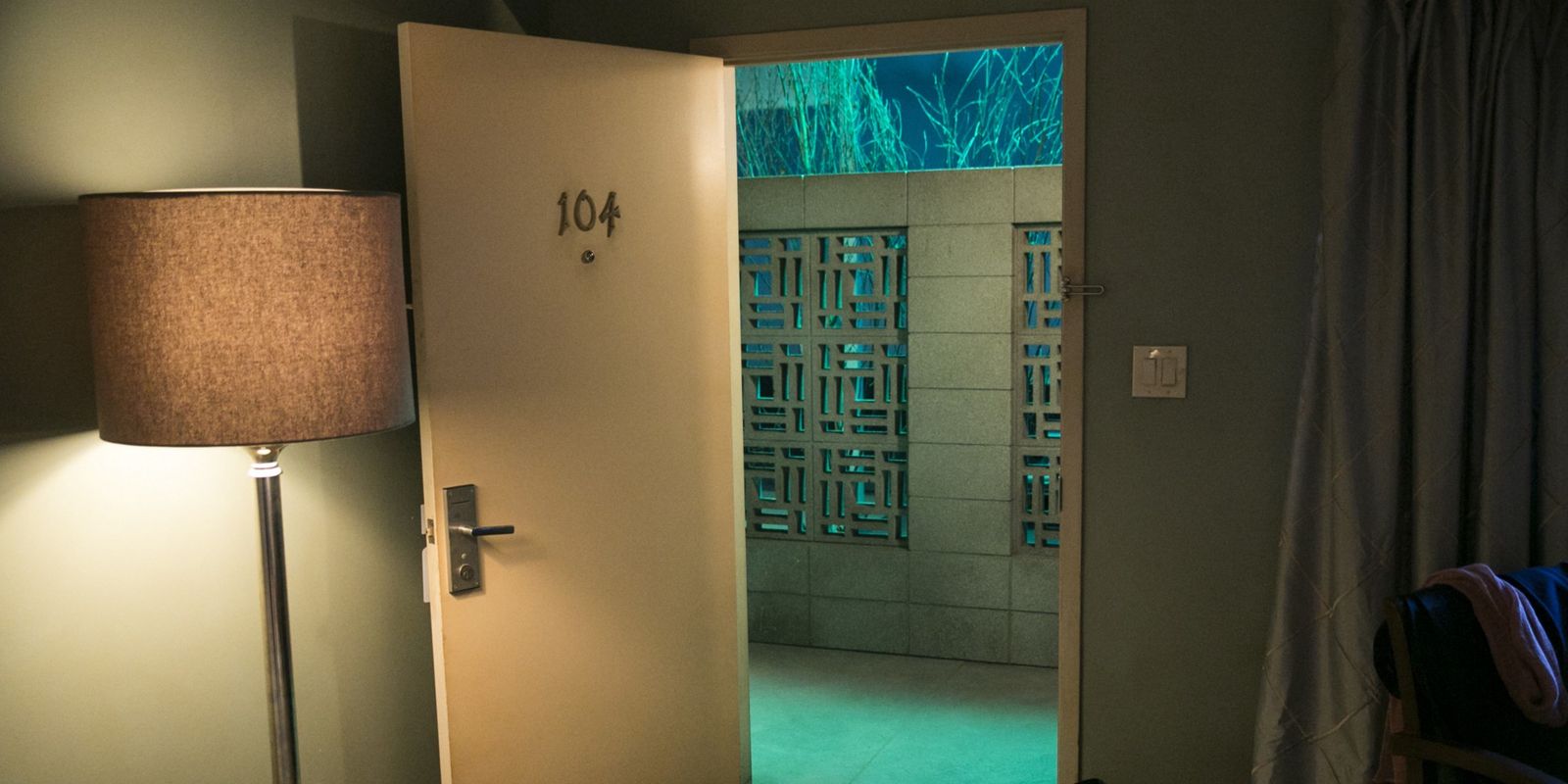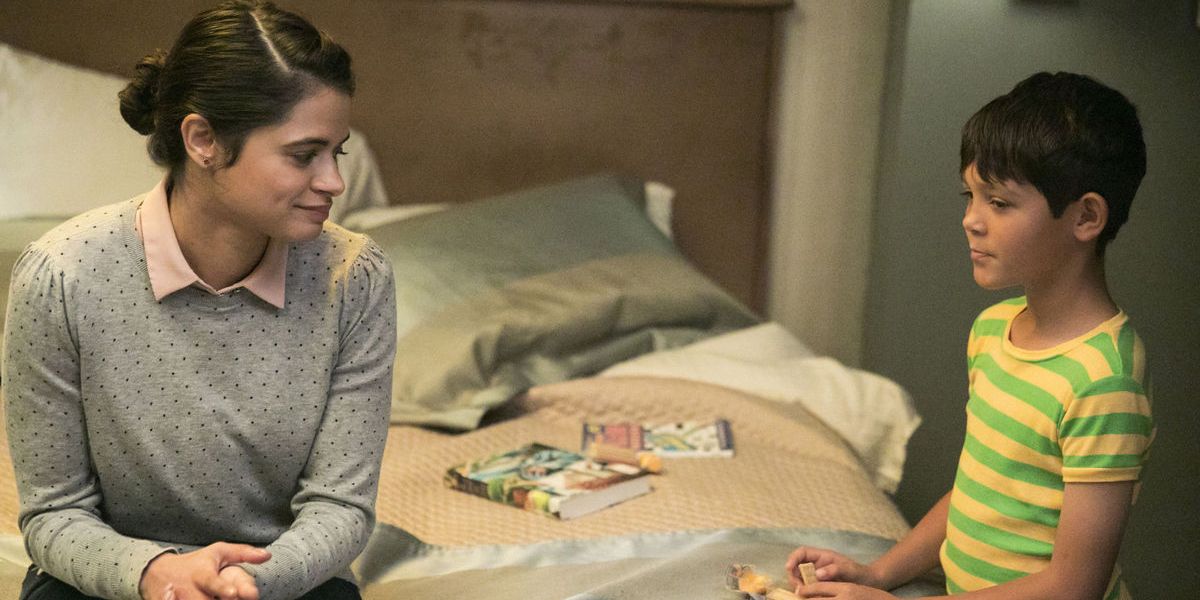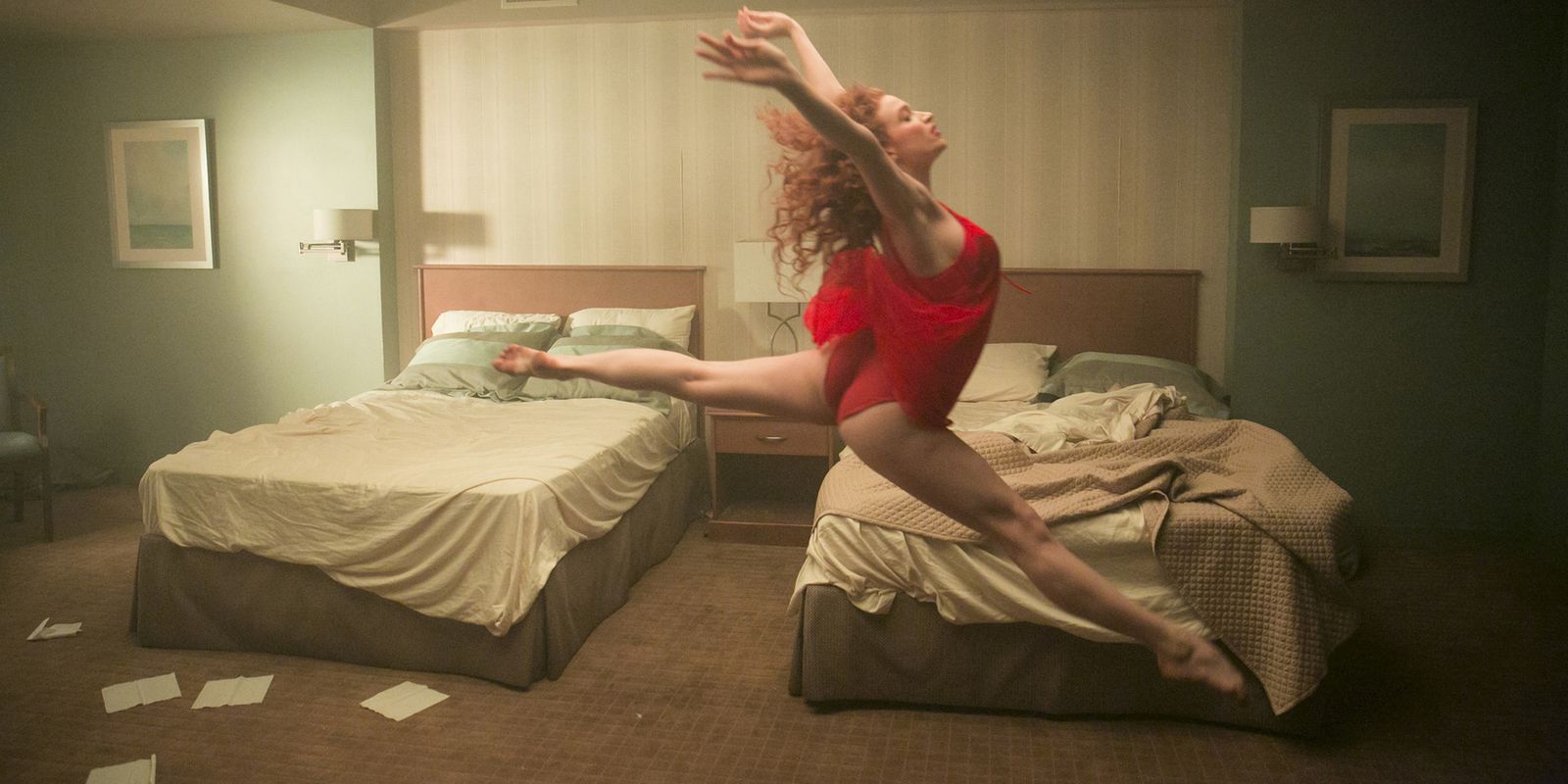HBO's anthology series Room 104 is a fascinating destination for the kind of storytelling you're not going to get anywhere else.
[This review of Room 104 contains some details about future episodes, which may be considered spoilers.]
-
When deciding whether or not to book a stay (yeah, sorry) with HBO's new anthology series Room 104, from creators Mark and Jay Duplass, there are two things you absolutely shouldn't do. For starters, you should not judge the series based on the show's eponymous hotel room. Its brown, stain-resistant carpeting, two double beds, TV, and in-room sink and vanity make it an unremarkable place to stage a television series. Yet the banal familiarity of the program's chosen confines open Room 104 up to limitless storytelling potential, as is evidenced by the wide range of one-and-done outings presented to critics ahead of the series premiere. Once you move past the motel room's modest trappings, the second thing you absolutely must not do is call it quits after the first episode.
The series kicks things off with 'Ralphie', which is sort of like training wheels for an anthology like this. It tells the story of a babysitter played by Melonie Diaz, who's hired sight unseen by a single father to watch his son while he goes out on a date, and it has all the trappings of the kind of story that gets told around a campfire or might be an urban legend in the making. The kid at first seems like an ordinary little boy who's a little shy and is maybe too preoccupied with his imaginary friend, but the more he insists his friend is not just real, but an abusive sibling locked in the bathroom, the more disconcerting the story gets.
Diaz does what she can to make the standard babysitter character as interesting as possible, but 'Ralphie' delivers so many familiar beats that, this being the premiere of a new series on HBO, you keep expecting it to subvert the typical babysitter-in-peril story in some way, but instead it ends abruptly, leaving those watching with more questions than answers – many of which are likely to be directed at the nature of the series itself. That's why starting with 'Ralphie' is something of a mixed bag for Room 104: It's not that 'Ralphie' isn't very good – the episode has some strong moments – it's that, with its unsettling, Twilight Zone-esque, perception-bending arc about a babysitter dealing with one (?) very strange child, the episode is in no way indicative of the surprising emotional depth and breadth of later installments.
The same is true for the third episode, 'The Knockadoo', which takes another unsettling approach to its story of a woman seeking deliverance with the help of a cult priest played by Orlando Jones. Both 'The Knockadoo' and 'Ralphie' take full advantage of the half-hour, short-story format by offering a pair of tales that feel enticingly, though almost frustratingly, open-ended. There's a desire to know more that is the byproduct of how the narratives only really start spinning as they reach the end of their respective runtimes. On the plus side, though the episodes teeter on the verge of being horror, they are so wholly different from one another, in terms themes, structure, performances, and visuals, that, just three episodes in, Room 104 defines itself as, if nothing else, a destination for the kind of storytelling you're not going to get anywhere else.
Unlike recent anthologies, like True Detective, American Horror Story, or Fargo, Room 104 offers an entirely new set of circumstances in each installment, like Black Mirror or the aforementioned Twilight Zone. It's a risk, as the only connection the audience will have with its disparate array of characters and circumstances is the motel room in which their stories unfold. There's nothing keeping viewers coming back other than the promise of something new and unexpected. And given the ongoing obsession with the serialized interconnectedness of cinematic and television universes, the closed, episodic nature of Room 104 will either be a breath of fresh air or that which alienates the viewer. Thankfully, as the series progresses, it's the former that seems most likely.
Room 104 is the kind of series that gets demonstrably better as it goes on. Often, you can track the improvement of a television show as the cast begins to gel, the actors become more comfortable in their roles, and the writers start to better understand what kind of show it is they're creating. That's not the case here. Aside from the set, the only constants are Mark and Jay Duplass, and although the brothers took a hand in writing the majority of the episodes, they didn't write them all, and, more often than not, they didn't direct either. That seems to be by design, so that Room 104 could be more of a hodgepodge of influences and creative voices, so that each episode could be more distinctly different from the one that preceded it. And given the way that HBO generally produces a season of television, by filming it in its entirety before the premiere, it seems likely that all the episodes were in the can and perhaps, lacking any real connective tissue between them, the sequence in which they aired may have been a bit like designing a playlist.
If that's the case, then the order in which the episodes were arranged says something interesting about Room 104. That's especially fascinating as episodes like the 1997-set 'The Internet', which stars Deadpool's Karan Soni, as a man frantically trying to instruct someone to use a computer over the phone, or the superlative, dialogue-free Voyeurs about a housekeeper (Dendrie Taylor) who connects with a younger guest (with a twist) played by Sarah Hay through a choreographed dance sequence become midseason highpoints that could potentially have altered audiences perception of the series from the beginning.
In the end, it may not matter, as Room 104 airs Friday nights at 11:30pm, meaning it likely won't crash HBO GO as millions of people race to live tweet 'Ralphie'. In that sense, it seems as though Room 104 was always intended to be something of a library show for HBO, something viewers can pull up at their leisure and watch a single episode of before moving on to the next one or not. The anthological aspect is made even more enticing, as the single-serve nature of the show means the creative highs will be higher and the lows lower from episode to episode. But the lack of continuity and consistency is, ultimately, the feature that defines Room 104 and offers it seemingly unlimited storytelling potential.
Next: Summer 2017 TV Premiere Dates: New & Returning Shows to Watch
Room 104 continues next Friday with 'Pizza Boy' @11:30pm on HBO.



